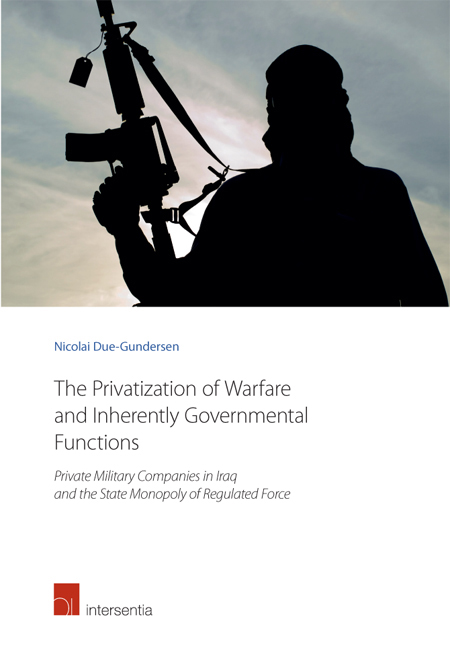 The Privatization of Warfare and Inherently Governmental Functions
The Privatization of Warfare and Inherently Governmental Functions Book contents
- Frontmatter
- Acknowledgments
- Contents
- Chapter 1 Introduction
- Chapter 2 The Recent History of PMCs
- Chapter 3 Literature Review
- Chapter 4 Methodology
- Chapter 5 Theoretical Approach and Terminology
- Chapter 6 Research Design
- Chapter 7 Main Analysis
- Chapter 8 The International Legitimacy of the ICoC
- Chapter 9 Final Conclusion
- Chapter 10 Addendum: The Business of Human Rights and Militarized Resource Companies (MRCs)
- References
- Appendices
Chapter 6 - Research Design
Published online by Cambridge University Press: 21 September 2018
- Frontmatter
- Acknowledgments
- Contents
- Chapter 1 Introduction
- Chapter 2 The Recent History of PMCs
- Chapter 3 Literature Review
- Chapter 4 Methodology
- Chapter 5 Theoretical Approach and Terminology
- Chapter 6 Research Design
- Chapter 7 Main Analysis
- Chapter 8 The International Legitimacy of the ICoC
- Chapter 9 Final Conclusion
- Chapter 10 Addendum: The Business of Human Rights and Militarized Resource Companies (MRCs)
- References
- Appendices
Summary
The qualitative nature of reviewed literature and the descriptive nature of the theories used in this study will influence the thesis itself to be descriptive and a qualitative exploration of a phenomenon's existence and effect. However, this author's study will attempt to develop conclusions that go beyond descriptive theory and scholastic calls for further public debate of a contemporary phenomenon. This author's study will therefore analyze qualitative data in order to arrive at a certain conclusion that directly addresses the research question regarding PMCs and their relations with the state, which the reviewed literature has failed to directly answer. Also, the study will analyze qualitative data within the context of formulated substatements and theories related to these sub-statements. Sub-statements will therefore be tested by gathered and analyzed qualitative data.
CASE STUDIES
The predominant focus on PMC presence in Iraq, as discovered through a review of existing literature, has allowed this author to determine Iraq to be the most appropriate research site. The main case studies of research will be divided according to the primary research question and secondary investigation of this thesis. Hence, the primary case study will be the Nisour Square Massacre and the Abu Ghraib Prison Scandal. The first section of the primary case study will discuss the American PMC, Blackwater (now known as Academi) and their activities in Iraq from 2004–2011. Specifically, the author will focus on the Nisour Square Massacre of 2007 and how Blackwater is described in public discourse in the years before, during and after the massacre. The second section of the primary case study will be the 2004 Abu Ghraib Prison Scandal, in which two PMCs were implicated. The author will focus on the ‘self-discourse’ of these two PMCs, Titan Inc and CACI and examine public discourse surrounding both PMCs (and PMCs in general) after the scandal was reported.
Both these cases have been selected for their publicity, allowing easier access of information on each case, and also because of their prospective effects on public perceptions of state legitimacy in addition to their prospective effects on perceptions of PMC business structures, accountability and PMC relations with clients and states. Because both cases provoked a questioning of U.S. governmental control over PMCs and their staff, the selected case studies can be analyzed within the context of the primary research question.
Information
- Type
- Chapter
- Information
- The Privatization of Warfare and Inherently Governmental FunctionsPrivate Military Companies in Iraq and the State Monopoly of Regulated Force, pp. 89 - 92Publisher: IntersentiaPrint publication year: 2016